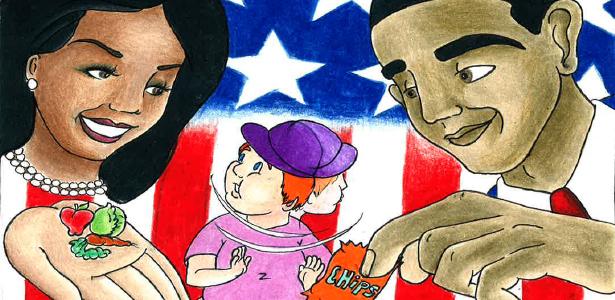Under new federal regulations announced 2013 and earlier this year, public schools will have to start to phase out student access to junk food and sugary drinks. While well-intentioned, these regulations will only serve to make junk food more attractive to children.
Beginning in February of last year, the U.S. Department of Agriculture announced, for the first time, broad standards that are intended to replace all unhealthy food served in U.S. public schools with healthier alternatives, according to a Feb. 25, 2014 Associated Press report.
The report explain that, “foods like fatty chips, snack cakes, nachos and mozzarella sticks would be taken out of lunch lines and vending machines. In their place would be foods like baked chips, trail mix, diet sodas, lower-calorie sports drinks and low-fat hamburgers.”
In addition to the USDA rules limiting the calories of food served in public schools, on Feb. 25, 2014 the Obama administration announced new restrictions that call on public schools to limit advertisements for junk food in schools, according to an AP report.
Under the new regulations, for example, an advertisement for Coca-Cola could not appear on the football scoreboard or on other parts of campus. However, “it could advertise Diet Coke or Dasani water, also owned by Coca-Cola Co,” said an AP report.
What these regulations fail to take into account is the phenomenon of psychological reactance.
Psychological reactance, according to an article in the Journal of Consumer Research, says that when a person feels that their freedom to make a decision is limited, they respond by adopting even more zealousness in the opposite decision. It also makes them more resistant to persuasion.
It is a similar concept to what is known in popular culture as the “forbidden fruit effect”: prohibiting an action, instead of successfully restricting unwanted behavior, actually ends up increasing it.
When I was 12 years old, I wanted a paintball gun. My mother, unfortunately, believed that a paintball gun was too dangerous for a sixth-grader and I was told I couldn’t have one. So I accepted the judgement of my mother and forgot all about my previous desire … kidding, of course.
My mother prohibiting me from owning a paintball gun only made me want it even more and so I saved up my allowance and had a friend, whose mother was more lenient on this issue, buy it for me.
Now, it’s entirely possible that I was just a horrible child, but in the particular instance, at least, my behavior could easily have been predicted by those whose job it is to study human behavior.
In a 1999 study titled “Restricting access to palatable foods affects children’s behavioral response, food selection, and intake,” published in The American Journal of Clinical Nutrition, researchers took group of children and placed two different kinds of candy on a table.
The children were told to eat as many of the first type of candy as they wanted. They were also told that they were not allowed to have the second type of candy. Later on in the study, they were given free access to both kinds of candy, and it was clear the the children preferred the one that was previously forbidden to them.
While this was just a short-term study, according to a Psychology Today article, other longer-term studies have also confirmed the findings.
It is absolutely true that children need some guidance and education to grow up and make healthy choices, but setting rigid limits like those that have been proposed will only serve to heighten children’s interest in junk food.
John Hopkins researcher Susan Carnell, Ph.D, writes in Psychology Today that “‘covert’ control strategies” – like taking your kids to restaurants with healthy choices, or avoiding keeping junk in the house – were linked with less intake of unhealthy snacks in kids.
Carnell also stated that “kids with parents who adopt a strict policy of restricting junk eat more of it when confronted with unlimited piles and given permission to cram in as much as they’d like.”
Given this fact, what do we expect children to do once they are out of school and at home?
By implementing measures that limit the ability of children to make their own decisions, we are doing our children a disservice.
If we, as a society, want to create lasting healthy habits in children, we should use subtler measures so they may make those decisions on their own rather than adults making those decisions for them.



